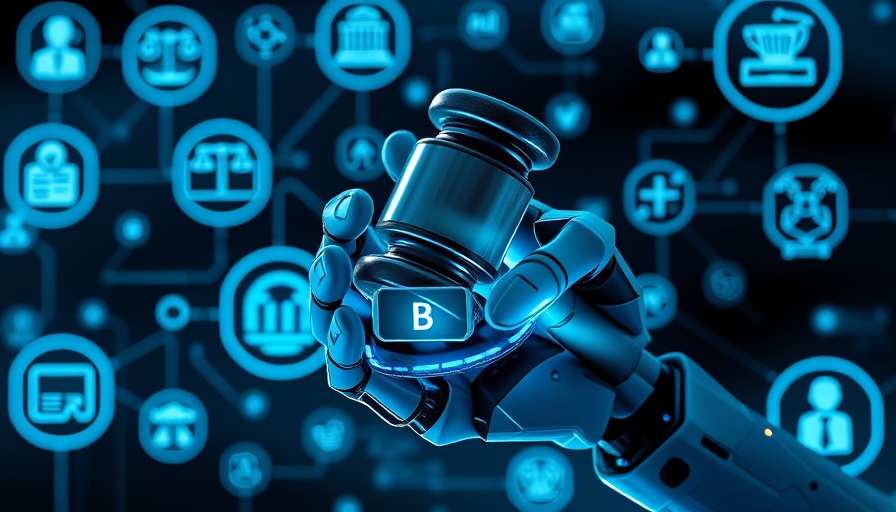
The Rise of AI Auditing in Business
As businesses seek greater efficiency and transparency in their operations, AI auditing services have emerged as a crucial element in navigating these complexities. With major accounting firms like Deloitte, PwC, Ernst & Young, and KPMG launching AI audit services, it's imperative for leaders to understand the implications of integrating artificial intelligence into their auditing processes. This leap toward AI-driven audits provides opportunities but also poses significant risks if not managed collectively.
Understanding AI-Driven Risks
Before selecting AI auditing services, leaders must recognize the vulnerabilities tied to AI implementation. The concept of ‘black box’ algorithms, which obscure the decision-making processes of AI systems, can lead to unintended consequences. A notable risk in consumer-facing industries is the potential for discrimination due to biased data inputs, resulting in issues such as price or quality discrimination. Such impacts can open businesses to legal troubles under disparate impact laws, reinforcing the urgent need for responsible AI practices.
The Framework for Responsible AI
The National Institute of Standards and Technology (NIST) provides an AI risk management framework that details how organizations can address the ethical dimensions of AI use. This framework emphasizes that responsible AI practices should not be treated in isolation but instead should intertwine with broader business objectives and governance structures. Integrating responsible AI principles into a company’s core values and daily operations can empower organizations to mitigate risks effectively.
Setting Clear Goals for AI Audit Services
When incorporating AI auditing, leaders must establish explicit goals. Traditional technology procurement frameworks emphasize performance and cost efficiency. However, leaders must also prioritize values such as equity, fairness, and transparency. Addressing these values requires organizations to cultivate a culture of trustworthiness, promoting alignment between AI tools and their organizational missions. This alignment ensures that AI audits are not only technically robust but also socially responsible.
Bridging the Knowledge Gap
Despite the increasing focus on AI audits, knowledge gaps persist. Research by Yueqi Li and Sanjay Goel highlights how young organizations struggle with embedding AI governance into their structures. As companies race to adopt AI solutions, they often overlook essential components of effective AI management, such as performance monitoring and responsible data practices. Therefore, it is paramount that organizations prioritize training and education for their leaders and teams to foster better understanding and utilization of AI audit services.
Conclusion: Embrace Responsible AI Practices
In conclusion, as leaders select AI audit services, they must carefully evaluate risks and implement frameworks that promote responsible AI usage. Collaborating with AI auditors who understand the intricate dynamics of technology, ethics, and business values will be essential for navigating the future of auditing services. Embrace the changes coming with AI in auditing, and ensure they align with the overarching goals of ethical business practices.
 Add Row
Add Row  Add
Add 




Write A Comment